Explore Tokyo - Japan Travel, Asia
Tokyo is Japan's bustling capital, where the traditions of old blend with cutting-edge innovation. As one of the world's most dynamic cities, Tokyo captivates travelers from across the globe with its unique charm. Whether you're wandering through serene temples or navigating neon-lit streets, Tokyo promises an unforgettable experience.
Seeking a tailored Japan adventure? Explore our premium Japan tour offerings here.
Population: Approximately 14 million in 2023.
Economy: The second largest metropolitan economy in the world after New York and the largest in Japan.
Landmarks: Shibuya Crossing, Tokyo Tower, and Meiji Shrine.
Japan
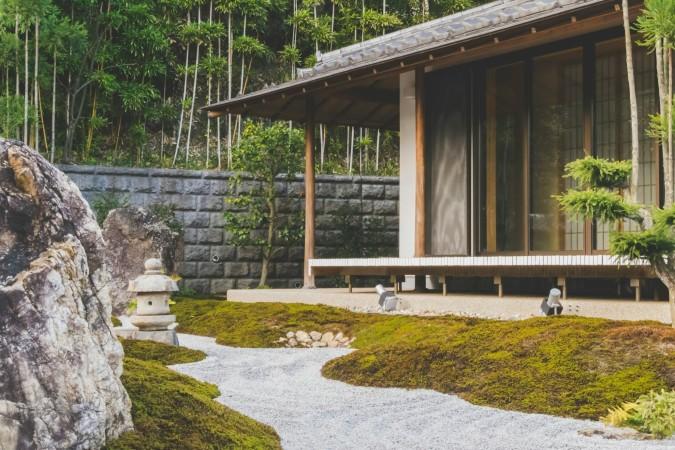
Overview of Tokyo
History & Culture Influence
Tokyo's history is remarkable, beginning with a little fishing hamlet in Edo and evolving into a worldwide city. The Edo period (1603-1868) laid the foundation for much of Tokyo's cultural heritage. During this time, the city blossomed into a political and cultural center under the Tokugawa shogunate. Today, remnants of Tokyo's storied past are woven into its modern landscape. Historical landmarks like the Imperial Palace, built on the site of Edo Castle, and the venerable Senso-ji Temple, Tokyo's oldest temple, offer glimpses into the city's rich heritage. Exploring these sites provides a deeper understanding of how Tokyo's history shapes its vibrant present.
Interaction with The Locals
Tokyo, the bustling capital of Japan, is home to approximately 14 million people, making it one of the most populous cities in the world. The city's population is diverse, comprising locals, expatriates, and a significant number of international students and workers. Known for its vibrant urban life, advanced infrastructure, and rich cultural scene, Tokyo seamlessly blends modernity with tradition, attracting millions of visitors each year. Join a traditional Japan tea ceremony, where you can experience the art of hospitality and the meditative preparation of matcha. Visit community festivals to witness traditional dances, music, and crafts, offering a window into the local way of life.
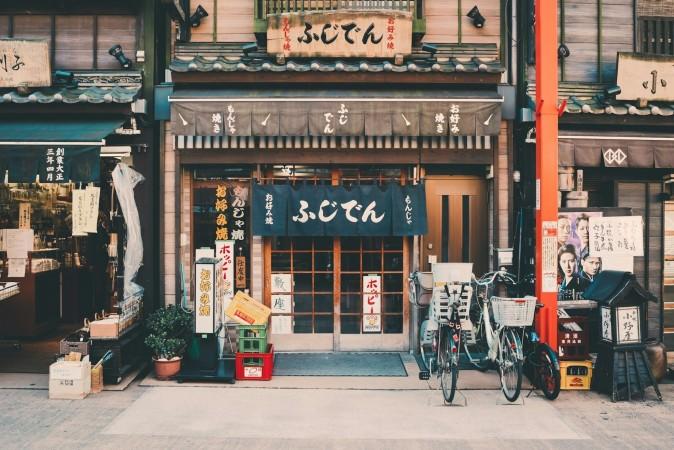
A quieter corner of Tokyo - © Clay Banks
Top Attractions in Tokyo
Tokyo is home to a myriad of attractions that cater to all interests. Explore these must-visit places in Tokyo to witness the city's unique blend of tradition and modernity.
- Shibuya Crossing: Discover the world's busiest pedestrian crossing, where the vivid dynamic energy brings the city to life. Surrounded by towering billboards and neon lights, Shibuya Crossing is a symbol of Tokyo's modern dynamism.
- Tokyo Tower: Tokyo Tower, a renowned landmark mimicking Paris' Eiffel Tower, provides panoramic views of the city. Visit the observation decks to see Tokyo's sprawling skyline and, on clear days, catch a glimpse of Mount Fuji.
- Senso-ji Temple: Located in Asakusa, Senso-ji Temple is Tokyo's oldest and most significant temple. The approach to the temple, Nakamise Street, is lined with traditional shops selling snacks and souvenirs, providing a delightful cultural experience.
- Meiji Shrine: Nestled in a lush forested area, Meiji Shrine is a serene escape in the heart of Tokyo. Dedicated to Emperor Meiji and Empress Shoken, the shrine is a place of tranquility and spiritual reflection.
- Ueno Park and Zoo: Ueno Park is a cultural hub featuring museums, galleries, and Tokyo's oldest zoo. The park is particularly beautiful during cherry blossom season, attracting visitors for hanami (flower viewing) picnics.
- Tokyo Skytree: Tokyo Skytree, the highest building in Japan, provides stunning vistas from its observation decks. The adjacent Solamachi complex is a great place for shopping and dining.
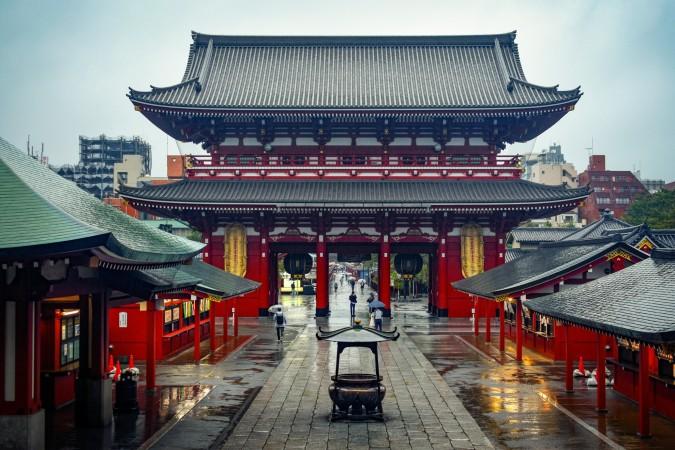
Senso-ji Temple - © Alex Ding
Must-Try Dishes in Tokyo
Tokyo is heaven for foodies around the world, with a wide variety of delicacies that represent Japan's rich culinary tradition. Explore Tokyo's best culinary treats and enjoy the rich tastes of Japanese food.
- Sushi and Sashimi: Tokyo is renowned for its fresh and exquisite sushi and sashimi. Visit Tsukiji Outer Market or upscale sushi bars in Ginza for the finest selections. Each piece of sushi is a delicate balance of flavors and textures, crafted by skilled chefs.
- Ramen: A comforting bowl of ramen is a must-try in Tokyo. With numerous ramen shops, each offering its unique take, you can savor rich broths, tender noodles, and flavorful toppings. Popular spots include Ichiran and Ippudo.
- Tempura: Light and crispy, tempura is a delightful dish consisting of battered and deep-fried seafood and vegetables. Asakusa is famous for its tempura restaurants, where you can enjoy this delicacy at its best.
- Yakitori: Yakitori, or grilled chicken skewers, is a popular street food and izakaya (Japanese pub) favorite. Head to Omoide Yokocho in Shinjuku to experience the vibrant atmosphere and savor different yakitori varieties.
- Okonomiyaki: Often referred to as Japanese savory pancakes, okonomiyaki is a mix of batter, cabbage, and various fillings cooked on a griddle. Tsukishima's Monja Street is a great place to try this hearty dish.
- Wagashi: For a sweet treat, try wagashi, traditional Japanese confections. These beautifully crafted sweets are made from ingredients like mochi, anko (sweet red bean paste), and seasonal fruits. They are perfect with a cup of matcha tea.
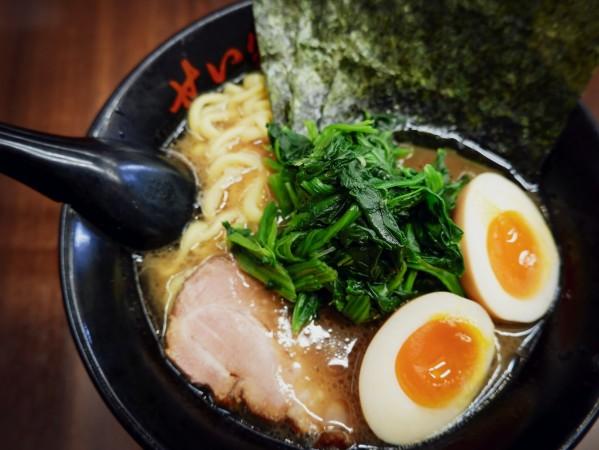
Ramen bowl in Tokyo - © Susann Schuster
Festivals & Local Celebrations
Tokyo hosts numerous festivals throughout the year, offering a glimpse into its rich cultural traditions and festive spirit.
Cherry Blossom Festival (Hanami)
Every spring, Tokyo's parks and gardens burst into bloom with cherry blossoms. Hanami, or flower viewing, is a cherished tradition where locals and tourists gather under blooming sakura trees for picnics and celebrations. Ueno Park and Shinjuku Gyoen are ideal for hanami.
Gion Matsuri
Originating from Kyoto, Gion Matsuri is celebrated in Tokyo with vibrant parades and traditional performances. The celebration has wonderfully adorned floats, vibrant music, and traditional dancing, which creates a happy mood.
Sumida River Fireworks
Held annually in July, the Sumida River Fireworks Festival is one of Tokyo's largest fireworks displays. Thousands of fireworks light up the night sky over the Sumida River, attracting large crowds who gather to enjoy the spectacular show.
New Year's Celebrations
Tokyo's New Year's celebrations are marked by various events, including the traditional Hatsumode (first shrine visit of the year). Meiji Shrine and Senso-ji Temple are popular places to experience this cultural tradition and join the locals in welcoming the new year.
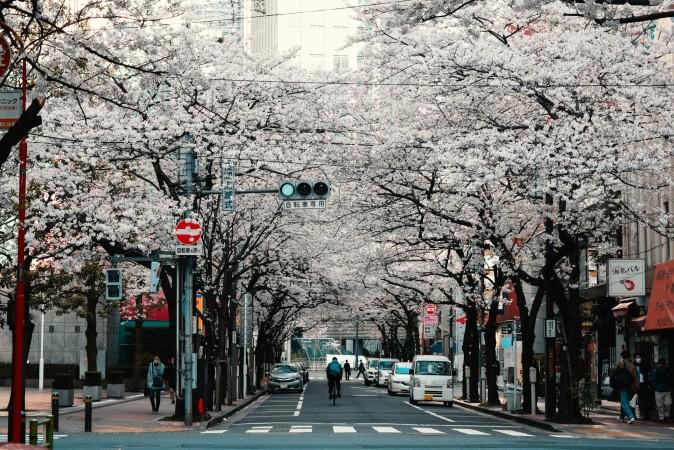
Cherry Blossom Festival - © Agathe
What to Do in Tokyo
There are a plethora of exciting things to do in Tokyo that cater to diverse interests.
- Exploring Tokyo Disneyland and DisneySea: Tokyo Disneyland and DisneySea are magical destinations for families and theme park enthusiasts. Enjoy thrilling rides, parades, and meet your favorite Disney characters in these beautifully themed parks.
- Visiting Museums: Tokyo boasts an impressive array of museums that cater to various interests. The Tokyo National Museum in Ueno showcases a vast collection of Japanese art and artifacts, while the Edo-Tokyo Museum offers insights into the city's historical evolution.
- Taking a Cruise on the Sumida River: Experience Tokyo from a different perspective with a cruise on the Sumida River. Daytime and nighttime cruises provide breathtaking views of the city skyline and prominent locations like the Tokyo Skytree and Asakusa.
- Experiencing Traditional Tea Ceremonies: Participate in a traditional Japanese tea ceremony to appreciate the art of matcha preparation and Japanese hospitality. Tea houses in Ueno Park and Hamarikyu Gardens provide serene settings for this cultural experience.
Shopping in Tokyo
Tokyo is a shopping haven, offering everything from high-end fashion to unique souvenirs. Here are some of the best shopping experiences in the city:
Shopping Districts
- Ginza: Known for its luxury boutiques, flagship stores, and upscale shopping malls, Ginza is the go-to place for high-end shopping.
- Shibuya: Famous for its bustling streets and trendy shops, Shibuya is perfect for fashion-forward travelers looking for the latest styles.
- Harajuku: The epicenter of youth culture and quirky fashion, Harajuku offers unique boutiques and streetwear shops that cater to eclectic tastes.
Famous Markets
- Tsukiji Outer Market: While the inner wholesale market has moved, Tsukiji Outer Market remains a vibrant place to explore fresh seafood, street food, and culinary delights.
- Ameyoko Market: Located near Ueno Station, Ameyoko is a bustling market street offering a wide range of goods, from fresh produce to clothing and cosmetics.
Department Stores and Malls
Tokyo's department stores, such as Isetan in Shinjuku and Mitsukoshi in Nihonbashi, provide a premium shopping experience with a vast selection of products and exceptional customer service. For a modern shopping experience, visit malls like Roppongi Hills and Tokyo Midtown.
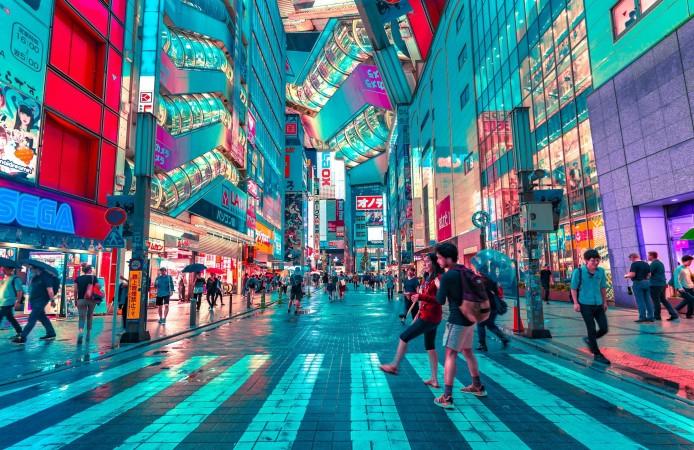
On the street of Shibuya - © Jezael Melgoza
Weather in Tokyo: Best Time to Visit
Tokyo experiences a temperate climate with four distinct seasons, each offering unique travel experiences and attractions. Here’s a breakdown of what to expect in each season and the tourism trends to help you plan your visit.
Spring in Tokyo
- Weather: Spring in Tokyo is famous for its cherry blossoms, making it one of the most popular times for tourists to visit. Temperatures are mild, ranging from 10°C to 20°C (50°F to 68°F), perfect for outdoor activities.
- Tourism Trend: The Cherry Blossom Festival (Hanami) attracts large crowds. Popular areas like Ueno Park, Shinjuku Gyoen, and Chidorigafuchi may get rather crowded. It is best to schedule lodgings and trips well in advance.
Summer in Tokyo
- Weather: Summer is hot and humid, with temperatures frequently topping 30°C (86° F). This season is known for its vibrant festivals and fireworks, making it an exciting time to visit despite the heat.
- Tourism Trend: The Sumida River Fireworks Festival and various summer matsuri (festivals) draw both locals and tourists. Coastal areas and beaches, like Odaiba, become popular destinations. Travelers often visit water parks and indoor attractions to escape the heat.
Curious about Tokushima? Learn more about what makes this spot so special in our detailed article.
Autumn in Tokyo
- Weather: Autumn brings cooler weather, with temperatures ranging from 15°C to 25°C (59°F to 77°F). The city’s parks and gardens transform with vibrant fall foliage, making it a picturesque and serene time to visit.
- Tourism Trend: The fall foliage season sees a moderate influx of tourists. Spots like Rikugien Garden and Meiji Jingu Gaien are famous for their autumn colors. It's a great season for cultural festivals and outdoor activities, with less crowds than in the spring.
Winter in Tokyo
- Weather: Winter is cold and dry, with temperatures ranging from 0°C to 10°C (32°F to 50°F). It's a great time to enjoy hot springs (onsen) and winter illuminations.
- Tourism Trend: Winter sees a dip in tourist numbers, making it a good time for those seeking a quieter experience. The city is beautifully decorated with illuminations, especially in areas like Roppongi and Shibuya. Visiting onsen resorts and enjoying seasonal foods, such as hot pot (nabe), are popular activities.
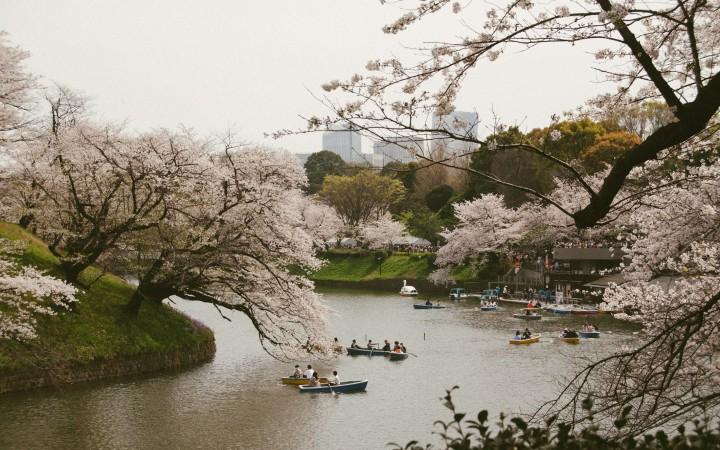
Spring in Tokyo - © Vanja Milicic
Essential Travel Information
Getting Around Tokyo
Tokyo boasts an extensive and efficient public transportation system, making it easy to navigate the city. The Tokyo Metro and Toei Subway lines, along with the JR Yamanote Line, are the primary modes of transport, known for their punctuality, cleanliness, and comprehensive coverage. While buses are less common for tourists, they still are the best transportation methods for areas not accessible by trains. Taxis, though more expensive, are widely available with professional and courteous drivers, and ride-sharing services like Uber are present but less prevalent. Additionally, Tokyo is becoming more bicycle-friendly, with rental services available at various locations, providing a great way to explore parks and quieter neighborhoods.
ATM & Banking Services
Tokyo is well-equipped with ATMs and banking services, ensuring that accessing money is convenient for travelers. ATMs in convenience stores accept international cards and are available 24/7. Japan Post ATMs are also accessible and accept most international cards. Major banks have ATMs that support international cards, though their hours may be limited. Currency exchange services can be found at airports, major train stations, and tourist areas, with banks offering these services during business hours.
Are you interested in Aizuwakamatsu? Discover more about this unique destination with our article here.
Where to Stay in Tokyo
Tokyo offers a wide range of accommodation options to suit all types of travelers and budgets. Luxury hotels provide stunning views, exceptional service, and luxurious amenities, offering a tranquil retreat in the bustling city. Mid-range hotels are popular for their central locations and a blend of modern comfort with traditional Japanese aesthetics. For budget-conscious travelers, hostels and capsule hotels offer affordable and comfortable stays, providing a unique and novel experience. Additionally, traditional ryokan offer an authentic Japanese experience with tatami rooms and communal baths, blending modern design with traditional hospitality.
Articles for you

Explore Yala National Park - Sri Lanka Travel, Asia
Tucked away in Sri Lanka’s southeastern corner, Yala National Park is where wild nature meets deep tradition. Known worldwide for its leopard population, the park is also home to elephants, sloth bears, crocodiles, and hundreds of bird species. Beyond wildlife, Yala opens doors to a cultural landscape dotted with ancient temples, Buddhist ruins, and coastal villages. For travelers seeking more than just a safari, Yala offers a chance to explore eco-tourism, local communities, and sacred heritage sites.
Population: The Yala National Park area doesn’t have a human population.
Economy: The economy around Yala National Park thrives on a blend of eco-tourism, agriculture, and local services. Safari tours, eco-lodges, and cultural experiences drive steady income for nearby towns like Tissamaharama and Kataragama, supporting thousands of families.
Landmarks: Famous for Block I of Yala and wildlife encounters, including elephants, sloth bears, crocodiles, and exotic bird species.

Explore Galle - Sri Lanka Travel, Asia
Nestled on Sri Lanka’s southern coastline, Galle is a vibrant city where history meets the sea. Its cobbled streets, colonial architecture, and serene beaches make it a must-visit destination for travelers seeking a blend of culture, adventure, and relaxation. A UNESCO World Heritage site, Galle captivates visitors with its Dutch Fort, bustling markets, and friendly locals. Whether you’re exploring the ramparts at sunset or savoring fresh seafood by the shore, Galle promises an unforgettable journey into Sri Lanka’s heritage.
Population: Approximately 113,000 in 2023.
Economy: Galle’s economy thrives on tourism, trade, and fisheries. The city’s historic fort, colonial architecture, and coastal charm draw thousands of international visitors each year, making tourism its main economic driver. Fishing remains vital for local livelihoods, supplying fresh seafood across the region.
Landmarks: Famous for the Galle Fort, Dutch Reformed Church & Maritime Museum, and Unawatuna Beach.

Explore Bentota - Sri Lanka Travel, Asia
Nestled along Sri Lanka’s southwestern coast, Bentota is a tropical paradise that blends golden beaches, vibrant culture, and thrilling adventures. Famous for its calm waters, luxury resorts, and scenic river estuary, Bentota has become a top destination for travelers seeking both relaxation and authentic experiences. From serene beach walks at sunrise to adrenaline-pumping water sports, this coastal town offers a perfect balance of leisure and exploration. With its proximity to Colombo and Galle, Bentota is easy to reach, making it an ideal stop for both short escapes and extended holidays.
Population: Approximately 37,000 in 2023.
Economy: Bentota’s economy thrives mainly on tourism, which drives local businesses such as hotels, restaurants, and wellness retreats. The town also benefits from fishing, coconut cultivation, and handicrafts like wood carving and batik textiles. Many residents rely on the growing demand for water sports and Ayurvedic treatments, making tourism the backbone of both income and employment in the area.
Landmarks: Famous for Bentota Beach, Bentota River Safari, and Kande Vihara Temple.

Explore Mirissa - Sri Lanka Travel, Asia
Mirissa is a charming coastal town on Sri Lanka’s southern shoreline. Known for its golden beaches, turquoise waters, and vibrant marine life, it has become a must-visit stop for travelers exploring the island. Many come for whale watching, surfing, and sunset views at Coconut Tree Hill, but Mirissa offers much more than postcard beauty. The fishing boats you see anchored by the bay carry generations of stories. Local traditions, delicious cuisine, and a laid-back rhythm of life shape every visitor’s experience.
Population: Approximately 4,700 in 2023.
Economy: Mirissa’s economy is largely shaped by its coastal location. Fishing has long been the backbone of local livelihoods, with generations relying on the Indian Ocean for income. In recent decades, tourism has become the main driver of growth, thanks to whale watching, surfing, and beachside hospitality.
Landmarks: Famous for Mirissa Beach, Coconut Tree Hill, and Parrot Rock Bridge.
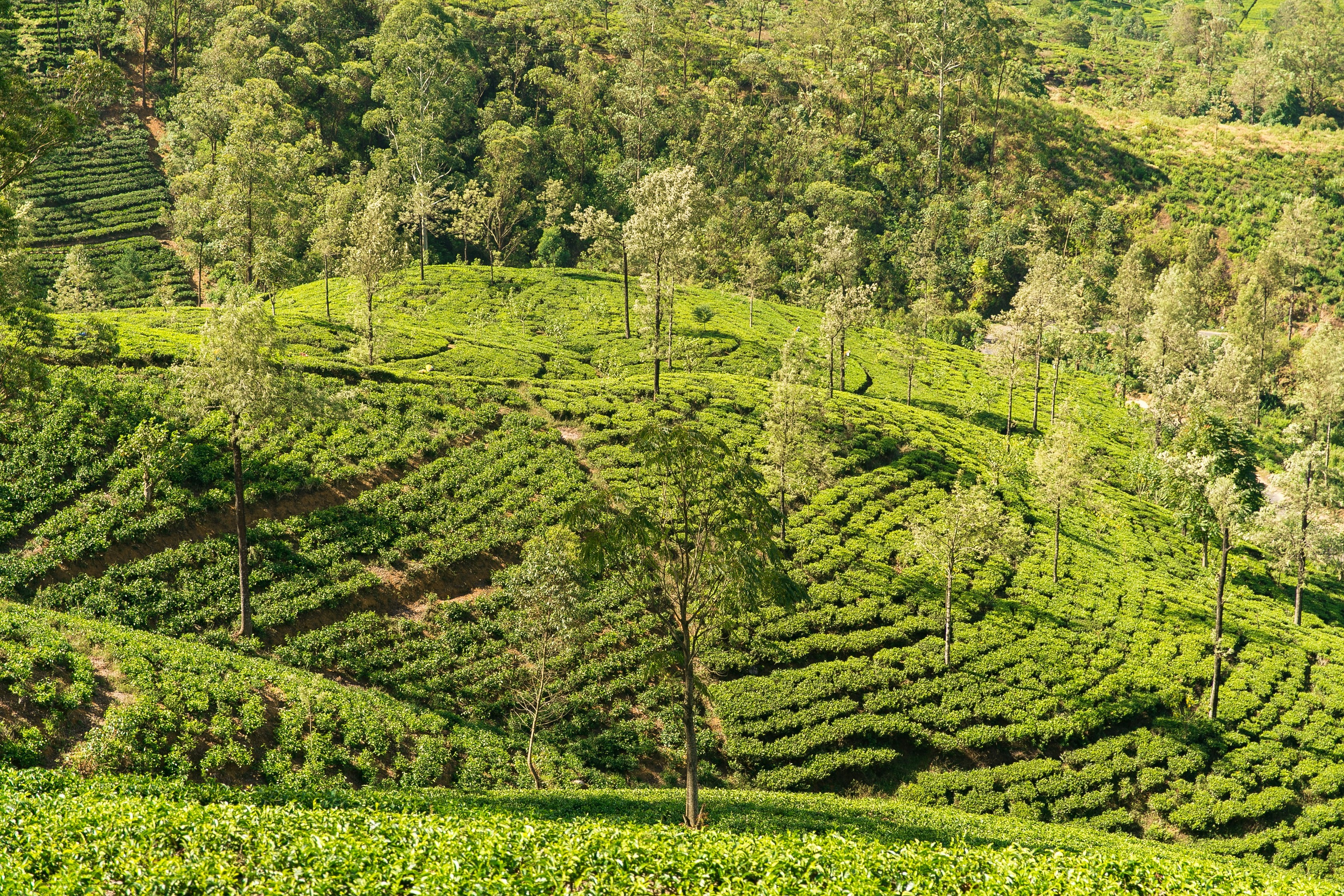
Explore Nuwara Eliya - Sri Lanka Travel, Asia
Tucked away in the Central Highlands of Sri Lanka, Nuwara Eliya is often called “Little England”. With its rolling tea plantations, cool misty mornings, and colonial charm, this mountain town feels like a step into another world. Travelers come here to breathe fresh air, walk through flower gardens, sip the finest Ceylon Tea, and enjoy a pace of life far from the island’s busy cities. Whether you’re drawn by scenic landscapes, heritage architecture, or the warmth of its people, Nuwara Eliya is a destination that blends nature, culture, and history in perfect harmony.
Population: Approximately 781,000 in 2023.
Economy: Nuwara Eliya’s economy thrives mainly on tea production, as it sits in the heart of Sri Lanka’s central highlands, famous worldwide for Ceylon Tea. The city also benefits from a growing tourism industry, attracting visitors with its colonial charm, cool climate, and scenic landscapes.
Landmarks: Famous for Gregory Lake, Hakgala Botanical Garden, and Victoria Park.

Explore Sukau - Malaysia Travel, Asia
Nestled on the banks of the Kinabatangan River in Sabah, Malaysian Borneo, Sukau is a destination where wildlife, culture, and conservation come together. Known as one of Asia’s top spots for river safaris and eco-tourism, this quiet village offers a front-row seat to encounters with Bornean orangutans, pygmy elephants, proboscis monkeys, and exotic birdlife.
Population: Approximately 1,400 in 2019.
Economy: Sukau’s economy is shaped by its riverine location and natural resources. Traditionally, the Orang Sungai community relied on fishing, small-scale farming, and forest gathering for their livelihood. Today, the village has shifted toward eco-tourism, with river cruises, jungle trekking, and homestays providing income.
Landmarks: Famous for the Kinabatangan River cruises, Gomantong Caves, and Ox-bow lakes and wetlands.
